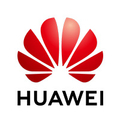At the “Vienna Tech for Green” event, Huawei presented a vision for promoting sustainable infrastructure together with partners from industry.
Vienna (OTS) – The “Vienna Tech for Green” initiative brought together numerous international companies, start-ups, researchers and government representatives in Vienna this week. The urgent need for action in the area of sustainability was discussed together against the background of growing global challenges. The role of technology in a sustainable and green future was highlighted.
In her opening speech, State Secretary for Digitalization, Claudia Plakolm, underlined the need for cooperation in this area: “Smaller states also have a responsibility to be at the forefront of the transformation of the economy and industry. Austria is a pioneer with its measures, for example with 5.7 billion euros in the federal government’s transformation offensive. The green exports of Austrian companies help reduce emissions worldwide. We must continue on this path together. Austria is therefore the ideal location for conferences like Darwin’s Circle,” says Plakolm.
ICT for building sustainable infrastructures
Radoslaw Kedzia, Senior Vice President European Region at Huawei, emphasized the crucial role of ICT infrastructures for sustainability in his keynote: “With its positive impacts, digitalization leads to increased efficiency across all industries, while significantly reducing carbon emissions and increasing the resilience of supply chains.” He added: “On this basis, ICT plays a crucial role in building holistically sustainable infrastructures.”
The decision-makers represented at the event agreed: collaboration is the key to success in achieving the vision of a more sustainable future. Governments, communities, industry, and other stakeholders must work together to develop comprehensive sustainability strategies and implement them accordingly. A holistic sustainable infrastructure should be the guiding principle for a greener future. Through sustainable practices in supply chain and business processes, infrastructure systems can not only reduce their impact on the environment, but also improve their long-term adaptability.
Use existing solutions
Andreas Rudas, President of Arthur D. Little and Chairman of the Supervisory Board of RTR-GmbH, added: “In a world where 29 percent of global CEOs see sustainability as a growth driver, we must be innovators and support (Austrian) companies, especially small and medium-sized companies, in the use of AI. We have extensive opportunities to promote sustainability using AI. At the same time, we have to keep an eye on the effects of big data and our energy production.”
Dr. Chirine Etezadzadeh, Founder and President of SmartCity.institute also emphasized: “Despite the diversity of the current challenges, we strongly recommend that municipalities now decisively address the issues of climate adaptation measures and security. We have to prepare for foreseeable developments. This includes measures that actively inform and integrate city residents. Climate adaptation measures are primarily based on nature-based solutions, but these should be networked with technical solutions. This is neither rocket science nor particularly expensive. So we can just start.”
Everyone present agreed that a holistically sustainable infrastructure requires a joint effort from all stakeholders. Through collaboration, innovation and resilience, infrastructure systems can be built that not only meet current needs, but also ensure the well-being of future generations and our planet.
Further information about Huawei Technologies Austria: https://grayling.uncovr.com/News.aspx?menueid=22194
Questions & Contact:
Huawei Technologies Austria GmbH
Michael Nowak
Media Manager Huawei Austria
Mobil: +43 664 5409 111
michael.nowak@huawei.com
https://e.huawei.com/at/about/huawei-enterprise
